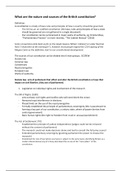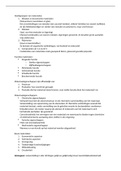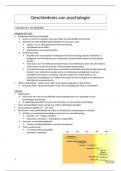Samenvatting
Summary UK politics AQA A level essay plans full
- Vak
- Instelling
- Boek
A* essay plans covering the whole of the UK politics AQA level course. Covers all main possible essay questions within the course with relevant points and examples.
[Meer zien]






